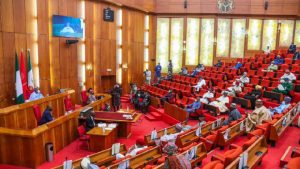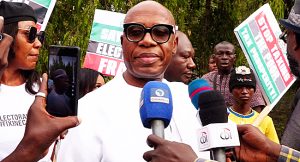The Organised Private Sector (OPS) has raised alarms over Nigeria’s inflation rate, which climbed to 34.80% in December 2024, as reported by the National Bureau of Statistics (NBS). This marks a slight rise from November’s 34.60%, attributed to festive season demand for goods and services.
The year-on-year inflation showed a significant increase of 5.87 percentage points from 28.92% in December 2023, driven by factors such as currency depreciation, high energy costs, and supply chain disruptions. Food and non-alcoholic beverages contributed the most to inflation, followed by housing, utilities, and transport.
Urban inflation outpaced rural inflation, standing at 37.29% year-on-year, while rural inflation reached 32.47%. Food inflation surged to 39.84%, primarily due to price hikes in staples like rice and yams, although month-on-month food inflation eased to 2.66%.
Business leaders, including the Nigerian Association of Small-Scale Industrialists, voiced concerns over rising production costs, reduced consumer purchasing power, and the risk of local businesses becoming less competitive against imports.
The Nigeria Association of Chambers of Commerce, Industry, Mines, and Agriculture (NACCIMA) stressed the need for inflation-lowering policies that address production costs, improve infrastructure, and foster fiscal discipline.
Experts like Dr. Muda Yusuf from the Centre for Promotion of Private Enterprise urged caution in monetary policy tightening, emphasizing the need for balanced revenue strategies to avoid further inflationary pressures and economic strain.
While inflation remains a challenge, optimism persists for 2025, with potential moderation in exchange rate volatility and global economic conditions.









